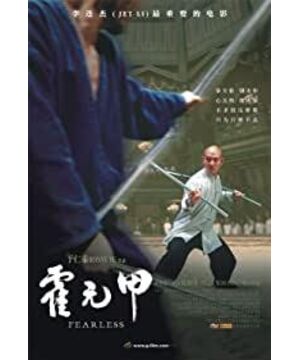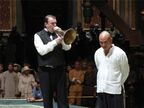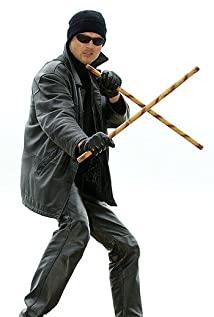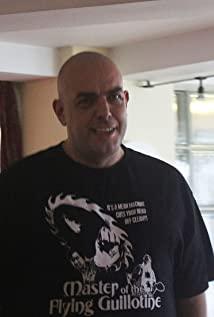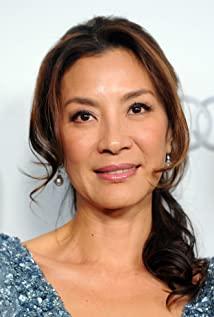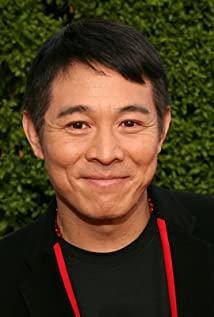text/Blood history
finally finished watching "Huo Yuanjia".
Not disappointed, but not very satisfied either.
As always, I don't expect to be educated by directors and screenwriters as elementary school students when I watch movies, nor do I expect them to educate me. In this world, there are other things that have not been rethought by philosophers throughout the ages, trying to educate people about what directors and screenwriters can say, not to mention Hegel and Berlin. The wisdom of the Willys can't pick up any more.
In the field of thought, the expressive power of the form of film is still like this, and it cannot be compared with the book. No matter how stupid a movie is, it can’t express the content of a chapter in a philosophy book. It is quite good to be able to express a concept clearly, so I always thought that the philosophy that a movie that tries to educate people can express is nothing more than studying hard every day. level. So I've never bought into films that try to educate people.
But for filmmakers who ask a question or express a personal idea, no matter how simple the question and idea are, I will maintain a little respect. In any case, they did not want to stand on a high platform to educate me, but asked a question for me to think for myself, or tried to express to me their understanding of a certain issue, which is equal, can be communicated, and is acceptable gesture.
"Huo Yuanjia" expressed Jet Li's understanding of martial arts and did not try to educate me, which reassured me. The fighting style was gorgeous and varied, and it was very lively, so I was not disappointed.
As for my dissatisfaction, it is because, except for the short performance at the end of the movie, I did not see Jet Li in the whole movie to express his true understanding of martial arts by fighting. It is also possible that he cares more about the spirit and thinking expressed in the whole film, and not so much about the form in the film.
Thinking about it again, this is still a commercial movie after all, not a private kitchen. It must be played well, it must have box office, and the martial arts director is Yuan Heping instead of Jet Li. I don't mean to belittle the professional level of today's No. 1 martial arts finger, Yuan Baye. It is precisely because Yuan Baye's professional standard is very good, so his starting point is that the movie is good and the game is good, so it can't reflect the understanding of martial arts. And his own understanding of martial arts should not be on a par with Jet Li.
When it comes to the understanding of martial arts, it must be said that Jet Li's only A-level production starring the protagonist - "The Savior" with an investment of 80 million US dollars, the English name is "The One".
It was a big production that didn't do well at the box office, and it also caused Jet Li to brush past first-line actors, but I thought it was Jet Li's best movie.
In the film, Jet Li and his version of himself in another time and space (I don't know how to say it, let's put it this way) meet. Jet Li uses Bagua Zhang, and the version of Jet Li uses Xingyiquan. This design is in line with the identities of the two characters. , and in line with the way of life grams. The only fly in the ointment is that his Xingyiquan is too strong and a little blunt. I don't know if it is to express the violent personality of Li Lianjie, or maybe it is because he has not practiced this boxing.
Perhaps because one of his coaches back then, Li Junfeng, practiced Baguazhang, Jet Li's Baguazhang is quite worth seeing. Shortly after the film started, Li returned home and practiced Baguazhang alone in a small room. In a very narrow space, his body undulating and moving like a dragon, even if it was purely from an aesthetic point of view, it was very charming. . Afterwards, in a decisive battle with the replica Jet Li, it was the movement technique of moving the Baguazhang against the opponent's body, making the opponent exhausted, as well as the perfect rotation of the inner boxing technique in defending and attacking, and the strength was continuous. The absolute verve is on full display.
This is much better than the fight with spears, spears, halberds, hard bridges and hard horses in "Huo Yuanjia". The martial arts finger in "The Savior" is Yuan Kui, but I believe that a considerable part of the fights in this film are from Jet Li's own hands, so he simply expresses his understanding of martial arts (martial arts as a skill) in form. "The Savior" is obviously higher than "Huo Yuanjia". It's a pity that this type of boxing focuses on the spirit and spirit. Even if the movements are firm and soft, the range is small, and the appearance is really not very gorgeous. To read this kind of meaning requires a certain understanding of martial arts and even traditional Chinese culture. This cultural difference and the requirements of the reading base make it reasonable for American audiences not to buy it. I think even Chinese audiences may not all think it looks good. So from a commercial point of view, this is really a piece of work. However, Jet Li's skills in this movie are enough to make him a martial arts master.
In "Huo Yuanjia", Li Lianjie once said an intriguing sentence through the mouth of the protagonist. He said that there is no strong or weak in boxing, only people can be strong or weak. I believe this really speaks to his understanding of martial arts as a purely skill level. If this guess is a lucky hit, then I will admire his mind very much.
Of course, many reports have said that he also mentioned that the essence of martial arts is to stop fighting, saying that "Martial arts creates physical skills and inner cultivation from the thinking method of 'stopping' to stop fighting. The extension of martial arts is greater than the extension of kung fu. It is much, much more, it is impossible to use kung fu to contain the essence of martial arts of our ancestors for thousands of years" and so on, but this is a problem on another level.
Seriously speaking, I don't think there is much difference between the strengths and weaknesses of any mature and systematic boxing, not to mention the various schools of martial arts. Only practitioners have strengths and weaknesses. Just like boxing does not have a certain gram, it only depends on how the envoy uses it. It is said that soft energy can overcome a thousand jins, but it has to be able to be moved.
Saying so, I am afraid it will arouse criticism from a large group of martial arts enthusiasts and patriots. Because people often say that Chinese martial arts is the strongest kung fu in the world, and if this is the case, then Chinese martial arts is not the strongest, but only with other kung fu such as Muay Thai, Brazilian Jiu-Jitsu, Japanese Aikido, etc. Again, it's up to you to see who is doing well. In this way, it will probably make people very uncomfortable, just because suddenly I lose a sense of innate superiority, which is afraid of being reduced to the Taishan faction, which is in charge of martial arts novels. similar.
Martial arts, no matter its essence is "stop" or "kill", the method is "kill", but it is by no means a simple art of killing.
Chinese martial arts originated from martial arts, and martial arts and dance have the same origin. Among the six arts of Zhou Li, ritual, music, archery, horsemanship, calligraphy, and arithmetic, ritual and music take the first place, and the two are integrated into one. The so-called ritual must be accompanied by music, and music is attached to ritual, and a considerable part of music is dance. In the Zhou Dynasty, Yale refers to the "six dances", among which Dawok and Dawu are martial dances, and in the later "six dances" and "eight dances", there are still martial arts. History says that Zhou Zhiya's music is upright and peaceful, and his voice is elegant and pure, so his dance should be the same.
Martial arts, derived from sacrificial and ceremonial martial arts, has been a multi-purpose skill from the very beginning. It is not just a skill to kill enemies, but also aesthetics, fitness, and even the simulation and respect of the natural world. Various functions have finally developed into a movement that can achieve a certain degree of breakthrough in the mind through the body. Therefore, the various boxing methods developed since then, whether it is battlefield killing boxing or one-on-one killing boxing, their theories will almost always be integrated into the traditional Chinese philosophy of the unity of nature and man, or in other words, Shaolin. Wudang, Tai Chi Changquan, and so on.
Therefore, in my opinion, the macroscopic so-called Chinese martial arts should be a practice method from the outside to the inside. Like Indian yoga, it is a means of one's own body and mind, and one's use of the body to realize the Tao.
We cannot research the ancients, but the lives of many great masters in modern times can be researched. They may not read much, but their demeanor and realm of life are first-class, such as Wang Wu Guo Yunshen Han Muxia Du Xinwu and so on.
Take Guo Yunshen, who was half-stepped into the world as an example. In addition to practicing martial arts, he also wrote books and books. When talking about boxing, he once said that the use of Xingyiquan has shape and appearance, famous and unmarked. There are voices, names, intangibles, invisible, invisible, silent, and odorous, and there are "speaking at any time, every word, every move, every move, standing, sitting, lying, and even eating, drinking, and drinking. No one is anywhere, and nowhere is useful, so there is no entry and no self-satisfaction, nowhere and no way, so that you remain silent and unmoved. Lao Tzu" and other words, thought it was fundamental.
This phenomenon is not an accidental occurrence in Chinese martial arts theory, but is everywhere. The meaning of various boxing theories always end up being quite similar to those of Confucianism, Confucianism and Zhuangzi. Therefore, it is okay to read the boxing classics, and think that it is better to sit and talk about Taoism. It is a means of comprehending the Tao through boxing and transforming it into the realm of the unity of heaven and man. In this level of understanding, the Japanese are also relatively good. Their martial artists are often referred to as art of war. They often use the art of war to enter martial arts, and they have learned the art of war and the Tao from martial arts, such as Liusheng and Miyamoto Musashi. If so.
I think, maybe if Jet Li really starts, he may not be able to defeat those opponents in the movie, but I believe that his thinking and understanding of martial arts and his life since martial arts are enough to make him a master of a generation.
Jet Li said that kung fu cannot include martial arts, and the extension of martial arts is much larger than kung fu. I also deeply believe that. Kung Fu is a physical skill, and martial arts in a broad sense is more like a philosophy of combining internal and external functions. Therefore, a generation of martial arts masters may not be invincible in the world, but in the realm of martial arts, they should be better than ordinary people.
View more about Fearless reviews


